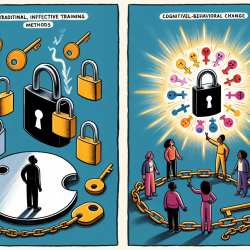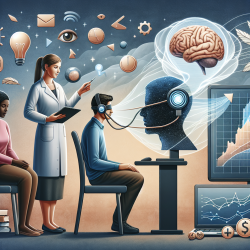Diversity, Equity, and Inclusion (DEI) training is a billion-dollar industry aimed at reducing workplace bias and promoting inclusivity. Yet, many of these programs fail to deliver the promised results. A recent research article titled "Developing scientifically validated bias and diversity trainings that work: empowering agents of change to reduce bias, create inclusion, and promote equity" sheds light on why traditional approaches often fall short and how an empowerment-based strategy can make a real difference.
The Problem with Traditional DEI Training
Most DEI trainings rely on the information deficit model, which assumes that simply providing information will correct biases. This approach treats participants as passive recipients of knowledge, often leading to defensiveness rather than change. Research consistently shows that these methods are ineffective at best and can even exacerbate existing issues.
The Empowerment-Based Approach
The empowerment-based approach shifts the focus from passive learning to active engagement. Instead of imposing change, this method respects individuals' autonomy and equips them with tools to become agents of change within their organizations. This approach draws on principles from cognitive-behavioral therapy (CBT), which has been proven effective in creating lasting behavioral change.
The Bias Habit-Breaking Training
The bias habit-breaking training is a prime example of an empowerment-based approach. Developed over 15 years with extensive experimental validation, this training helps individuals recognize biases as "habits of mind" that require ongoing effort to change. Participants learn actionable tools to identify and address biases in various forms, making the process self-sustaining over time.
Evidence of Effectiveness
- Reducing Bias: Studies show that participants in bias habit-breaking training demonstrate significant reductions in implicit bias, lasting well beyond typical interventions.
- Creating Inclusion: Participants are more likely to speak up against biased rhetoric and engage in inclusive behaviors.
- Promoting Equity: Organizations implementing this training have seen measurable improvements in hiring practices and workplace climate.
A Call to Action for Practitioners
If you're involved in DEI efforts within your organization, consider adopting an empowerment-based approach like the bias habit-breaking training. This method not only respects individual autonomy but also provides the tools necessary for lasting change. By focusing on empowering individuals as agents of change, you can foster a more inclusive and equitable environment.










